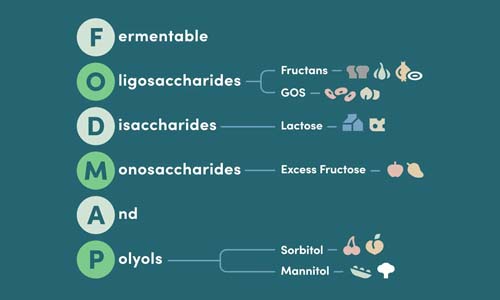Are Olives Low FODMAP? Complete Guide + Safe Servings

Key Takeaways
- Most plain olives are low FODMAP and safe for people with sensitive stomachs.
- Olives can add rich, briny flavor to meals without causing digestive discomfort.
- Choosing the right olive varieties and avoiding certain additives is important for maintaining low FODMAP compliance.
- Olives are a Mediterranean staple suitable for a low FODMAP diet.
Table of Contents
- Quick Answer, Are Olives Low FODMAP?
- What Does "Low FODMAP" Mean, and Why It Matters for Olives
- Types of Olives, Green vs. Black vs. Kalamata
- Reading Olive Labels, Avoiding High FODMAP Additives
- Beyond Olives: Is Olive Oil Low FODMAP?
- Comparing Olives to Other Mediterranean Condiments
- Why Do Some People Still React to Olives?
- Gourmet, Gut-Friendly Olive Recipes
- Shopping and Eating Out, Finding Safe, Gourmet Olive Products
- Nutritional Benefits, Beyond FODMAPs
- The Verdict, Making Olives Work for Your Gut and Palate
Are Olives Low FODMAP? Olive Oil, IBS, and Gourmet Flavor, A Complete Guide
If you're following a low FODMAP diet, you'll be pleased to know that are olives low fodmap has a reassuring answer: most plain olives are indeed low FODMAP and safe for sensitive stomachs. This Mediterranean staple can add rich, briny flavor to your meals without triggering digestive discomfort, when you know which varieties to choose and which additives to avoid.
FODMAPs are specific types of carbohydrates that can ferment in your gut, causing bloating, gas, and discomfort for people with IBS or sensitive digestion. For many of our customers, avoiding these fermentable sugars means easier digestion and less bloating after meals.
Olives naturally contain very few FODMAPs, making them an excellent choice for flavor without digestive drama. Unlike many condiments and pickled foods that rely on garlic and onion for depth, plain olives deliver rich, savory taste through their natural oils and brining process. For more information on how other pickled foods compare, you may want to read about are pickles low FODMAP.
Types of Olives, Green vs. Black vs. Kalamata
Each olive variety brings distinct flavors and textures to your low FODMAP kitchen, all while maintaining their gut-friendly status when plain.
Green olives offer a firm, meaty texture with bright, slightly bitter notes, perfect for salads and antipasto plates. Black olives provide milder, buttery flavor that works beautifully in pasta dishes and on pizza. Kalamata olives deliver rich, wine-like complexity that elevates Mediterranean dishes.
| Type | Flavor Profile | Best Uses | Safe Serving |
|---|---|---|---|
| Green | Bright, firm, slightly bitter | Salads, martinis, tapenade | 15-20 olives |
| Black | Mild, buttery, soft | Pizza, pasta, casual snacking | 15-20 olives |
| Kalamata | Rich, wine-like, complex | Greek dishes, gourmet cooking | 15-20 olives |
Reading Olive Labels, Avoiding High FODMAP Additives

The key to keeping olives low fodmap lies in scrutinizing ingredient lists. Many commercial olive products sneak in garlic, onion, or "natural flavors" that can trigger symptoms. If you're curious about other vegetables and their FODMAP content, you might also find it helpful to explore are carrots low FODMAP.
Ingredients to avoid: Garlic (fresh, powder, or extract), onion, shallots, and ambiguous "spice blends." Even garlic-stuffed olives or those marinated with whole garlic cloves should be skipped entirely.
Grocery Store Strategy: Choose jarred olives with simple ingredient lists: olives, water, salt, vinegar. Avoid deli bar olives where cross-contamination with garlic-heavy marinades is common.
Beyond Olives: Is Olive Oil Low FODMAP?
Olive oil is completely FODMAP-free because it contains no carbohydrates, the source of all FODMAPs. This makes it an ideal base for building gourmet flavor in your low FODMAP kitchen.
Pure olive oil infusions can be tricky territory. While garlic-infused olive oil is technically safe if prepared correctly (oil doesn't absorb water-soluble FODMAPs), commercial versions often contain garlic particles. The safer approach: create your own infusions using chive stems or green leek tops for that coveted oniony depth.
Safe Infusion Method: Gently warm olive oil with chive stems for 10 minutes, strain completely, and refrigerate. Use within one week for optimal safety and flavor.
At Gourmend Foods, we harness this principle in our broths, combining cold-pressed olive oil with chives and green scallion tops to deliver rich, onion-like complexity without the digestive consequences.
Comparing Olives to Other Mediterranean Condiments
When building your low FODMAP pantry, understanding how olives low fodmap status stacks up against other Mediterranean staples helps you make confident choices. For example, if you are curious about fruit options, you can also check out are grapes low FODMAP.
| Condiment | FODMAP Status | Safe Serving | Watch For |
|---|---|---|---|
| Plain olives | Low FODMAP | 15-20 olives | Garlic/onion in brine |
| Capers | Low FODMAP | 1-2 tablespoons | Generally safe |
| Pickles | Variable | Check ingredients | Garlic in brine common |
| Sun-dried tomatoes | Moderate FODMAP | 4-6 pieces max | Concentrated fructose |
Olives shine as the most reliable option for cocktail nibbles and cooking bases, offering consistent low FODMAP status across varieties while delivering bold, satisfying flavor. For a scientific perspective on olives and FODMAPs, see this research article.
Why Do Some People Still React to Olives?

If you're experiencing symptoms despite choosing plain olives, the culprit likely isn't FODMAPs. High sodium content can trigger bloating in salt-sensitive individuals, while the concentrated fat content may cause discomfort for those with fat malabsorption issues.
Cross-contamination at deli bars presents another risk. Shared utensils and proximity to garlic-marinated items can transfer problematic ingredients to otherwise safe olives.
Action Plan: Start with smaller portions (5-10 olives), choose jarred over deli bar options, and rinse olives to reduce sodium if salt sensitivity is suspected.
Gourmet, Gut-Friendly Olive Recipes
Transform your olive low fodmap ingredients into restaurant-quality dishes that celebrate abundance over restriction.
Low FODMAP Olive Tapenade: Blend Kalamata olives, fresh chive stems, lemon zest, and Gourmend olive oil. Serves as an elegant appetizer spread or pasta sauce base. Our chive-forward approach delivers the savory depth traditionally achieved with garlic.
Mediterranean Quinoa Salad: Combine cooked quinoa, diced olives, chive sprigs, and lemon vinaigrette. This protein-rich dish showcases how Gourmend's ingredient philosophy, using green leek tops and chives instead of onion bulbs, creates complex flavors without digestive compromise.
Herb-Crusted Chicken: Create a paste using minced olives, fresh herbs, and olive oil as a coating for baked chicken. The olives provide moisture and umami richness that keeps lean proteins succulent.
For recipe modifications and additional low FODMAP cooking inspiration, explore our conversion tool and recipe collection.
Shopping and Eating Out, Finding Safe, Gourmet Olive Products
Navigating restaurants and markets for are olives low fodmap options requires a strategic approach, but the payoff is worth it for both flavor and digestive comfort.
At restaurants, use this script: "Could I get plain olives without any garlic or onion marinades? Just oil, herbs, and salt would be perfect." Most establishments can accommodate this request, especially Mediterranean restaurants that stock basic preparations.
Deli bar warning signs include shared utensils between different olive varieties, cloudy brine indicating garlic particles, and staff unfamiliar with ingredients. When in doubt, choose pre-packaged options where you can read the full ingredient list.
Smart Shopping Strategy: Stick to jarred olives with simple ingredient lists, avoid bulk bins with cross-contamination risk, and always read labels for "natural flavors" which may hide garlic compounds.
For home cooking that rivals restaurant quality, our Low FODMAP recipe collection provides tested combinations that showcase how fodmap olives integrate beautifully with other gut-friendly ingredients. For a comprehensive overview of FODMAPs, you can also visit this FODMAP resource.
Nutritional Benefits, Beyond FODMAPs

Olives and olive oil deliver exceptional nutritional value that supports both digestive wellness and overall health. The monounsaturated fats in olives help reduce inflammation while providing sustained energy without blood sugar spikes.
Each serving of olives provides vitamin E, iron, and copper, plus powerful antioxidants like oleuropein that support cardiovascular health. Unlike many condiments that offer empty calories, low fodmap olives contribute meaningful nutrition to your meals.
The abundance approach we champion at Gourmend Foods means focusing on what olives add, rich flavor, healthy fats, and satisfying texture, rather than viewing them as a restriction-friendly substitute. This mindset transforms low FODMAP eating from limitation to liberation.
The Verdict, Making Olives Work for Your Gut and Palate
Are olives low fodmap? Absolutely, when chosen wisely. Plain varieties across the spectrum, green, black, and Kalamata, offer reliable digestive comfort in reasonable servings while delivering the bold, sophisticated flavors that make Mediterranean cuisine so appealing.
The key lies in reading labels vigilantly and understanding that olive fodmap status depends entirely on preparation method. Skip the garlic-stuffed varieties, rinse away excess sodium if needed, and embrace the versatility that makes olives a cornerstone ingredient for gourmet, gut-friendly cooking.
Your action plan: Start with 10-15 plain olives to test tolerance, graduate to homemade tapenades using chive stems for depth, and incorporate olive oil liberally as your go-to cooking fat. The combination of safety, nutrition, and flavor makes fodmap olives an essential component of any well-designed low FODMAP pantry.
For continued culinary inspiration that celebrates abundance over restriction, explore our recipe conversion tool to transform your favorite olive-forward dishes into gut-friendly masterpieces.
Frequently Asked Questions
Are all types of plain olives considered low FODMAP, and what is the recommended serving size?
Most plain olives are low FODMAP and safe for sensitive digestion when eaten in moderate amounts. A typical safe serving size is about 15 small olives (30 grams), which provides rich flavor without triggering digestive discomfort.
Why is it important to check olive labels for additives when following a low FODMAP diet?
Many marinated or flavored olives contain high FODMAP ingredients like garlic or onion, which can cause digestive issues. Checking labels helps you avoid these additives and ensures your olives remain gut-friendly and true to a low FODMAP diet.
How do green, black, and Kalamata olives differ in flavor and best uses while remaining low FODMAP?
Green olives have a firm, slightly bitter bite ideal for salads and antipasto. Black olives offer a milder, buttery taste perfect for pasta and pizza. Kalamata olives bring rich, wine-like complexity that enhances Mediterranean dishes, all low FODMAP and delicious.
Can olive oil be included in a low FODMAP diet, and how does it compare to whole olives in terms of digestive tolerance?
Olive oil is naturally low FODMAP and generally very well tolerated since it contains no fermentable carbs. Compared to whole olives, olive oil adds smooth, rich fat without fiber, making it an excellent choice for gentle digestion and gourmet flavor.





